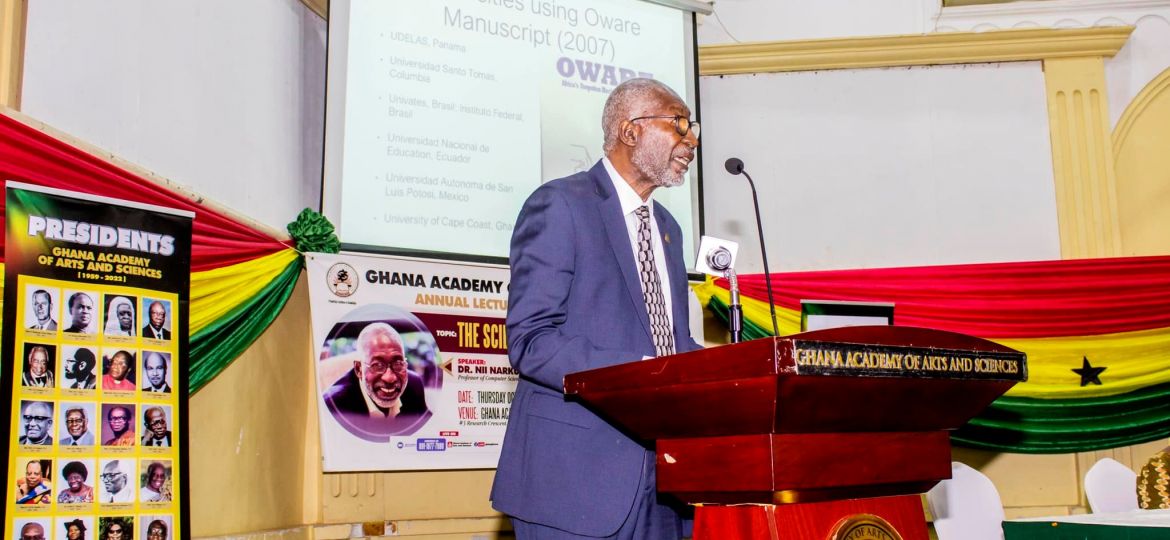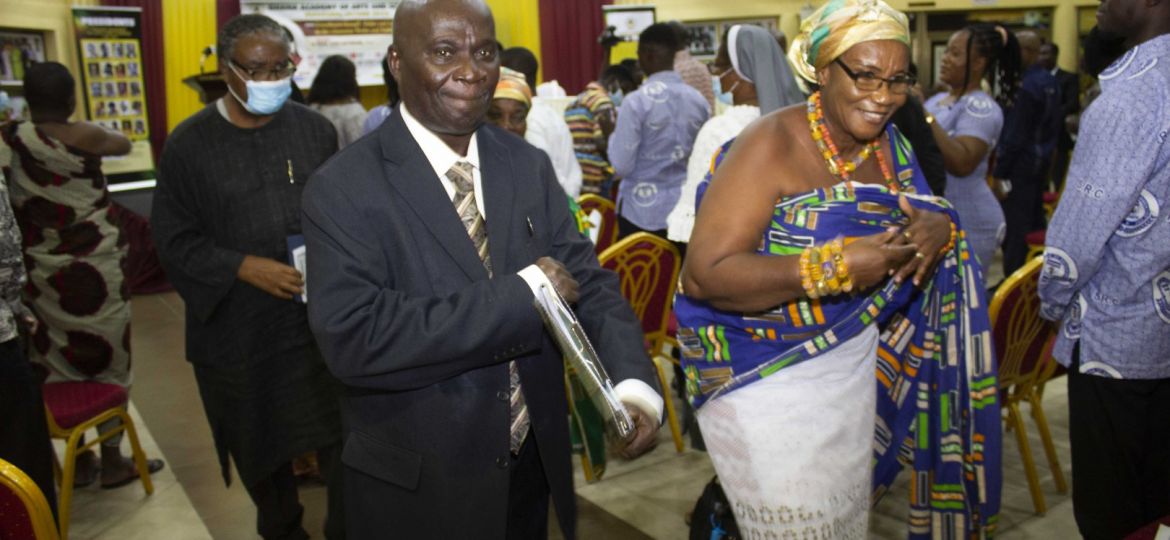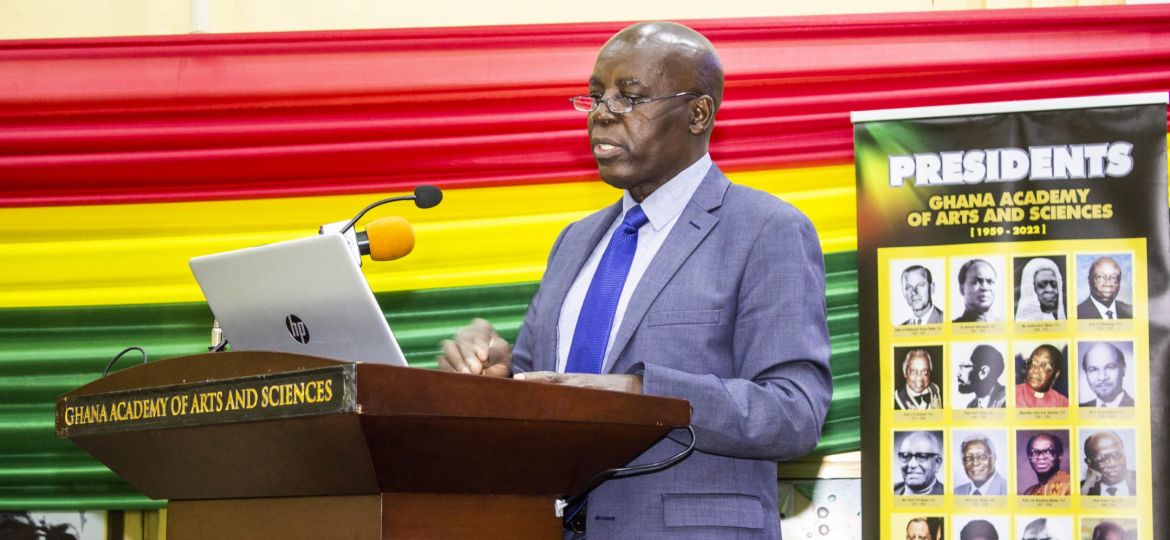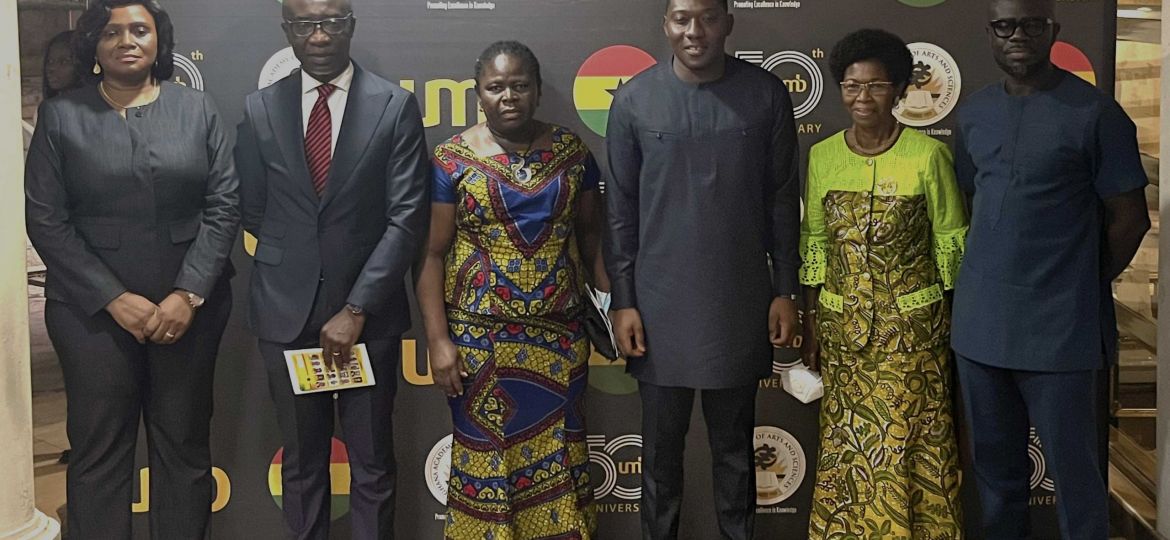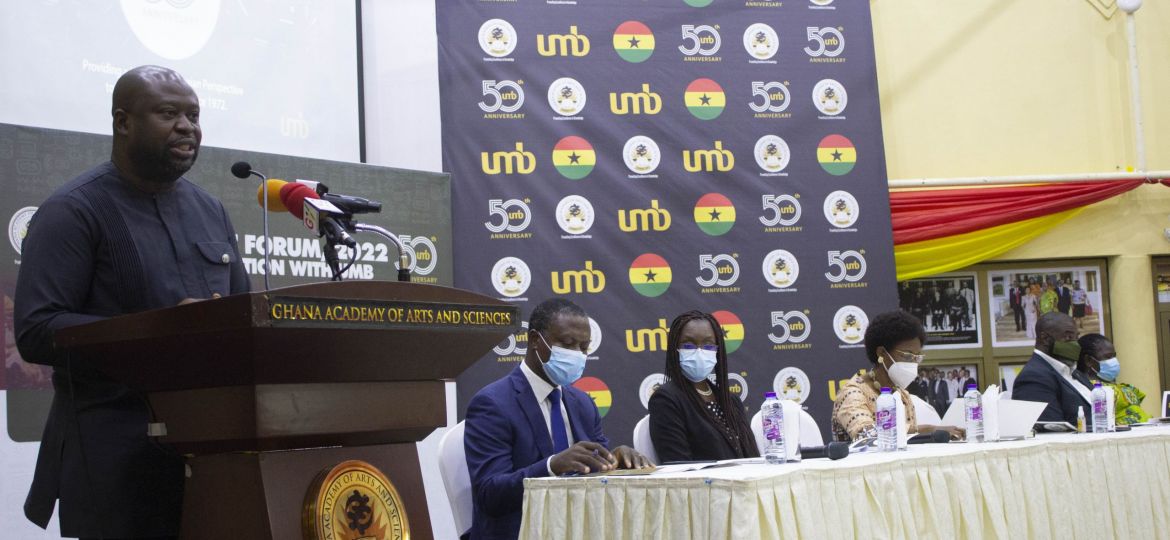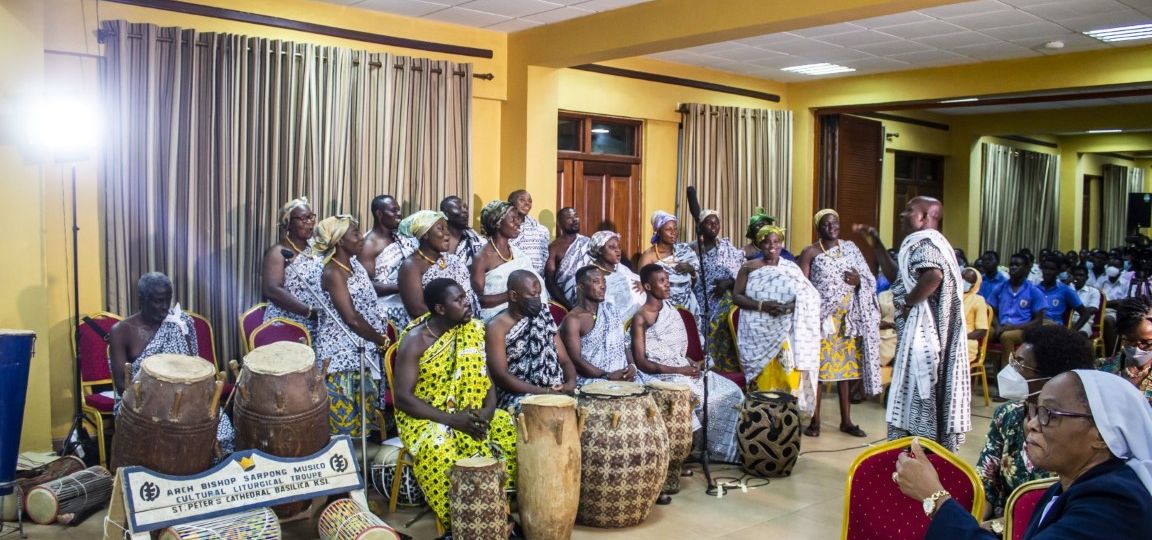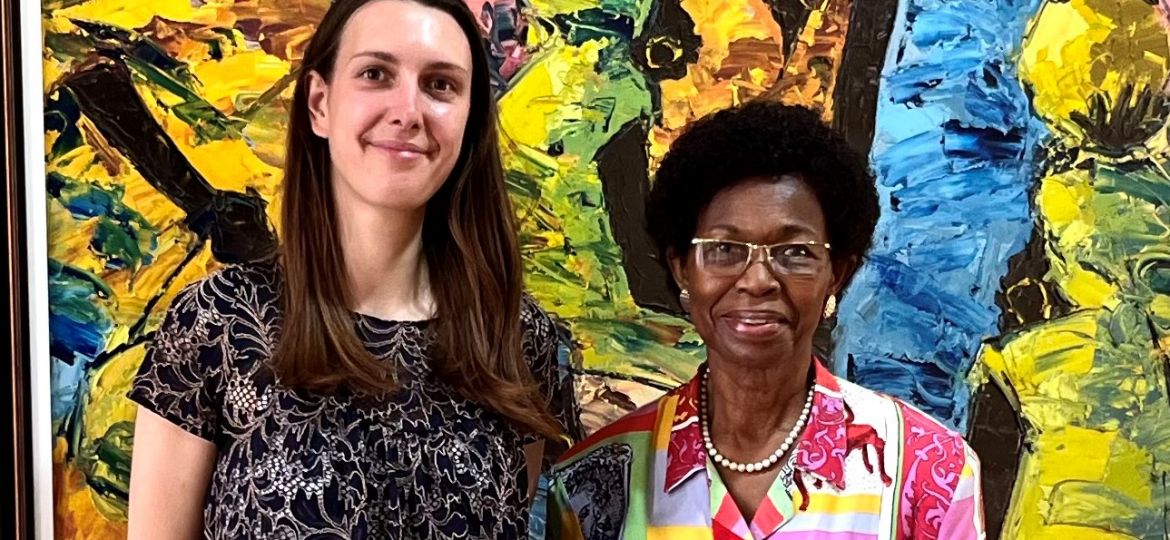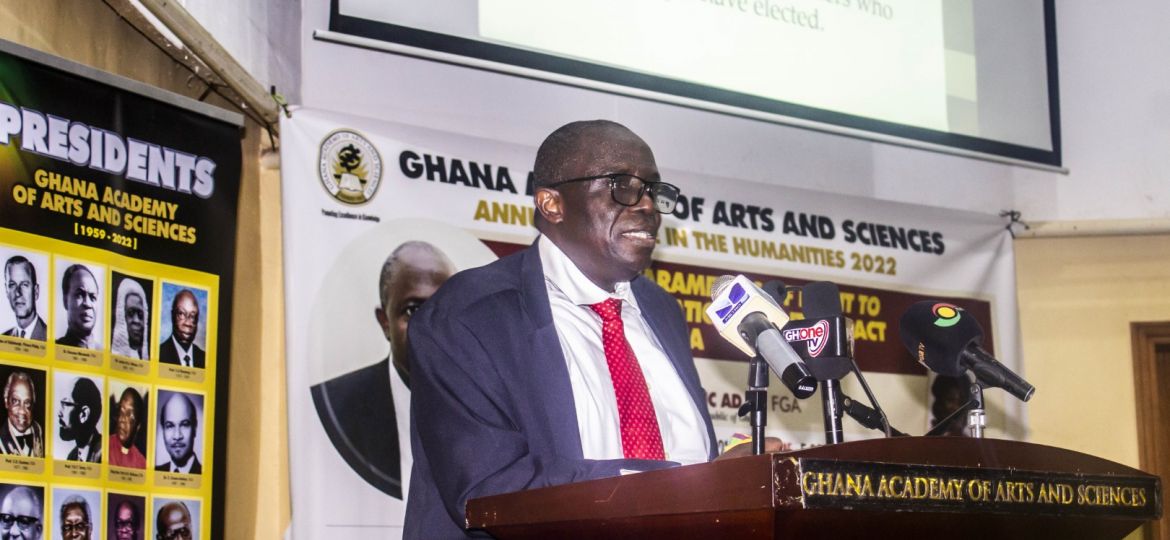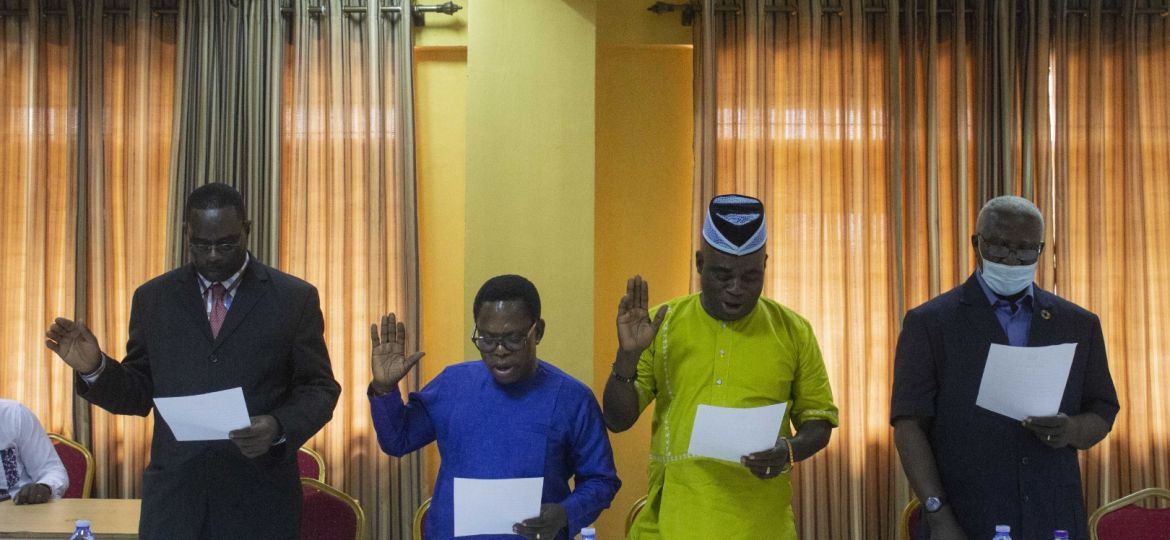Dr. Nii Darku Quaynor, FGA on Thursday 06 of October 2022 has said Ghana has enormous traditional technologies and tools, which when developed into modern educational and computational tools will be critical for national development. He said whiles delivering his annual lecture on the theme “The Science of Oware Board” at the Academy’s auditorium.
“Language has some intrinsic power to make and unmake. Not only for our sake but also the sake of posterity, for our survival and well-being let us choose the positive side, communicative politeness and throw away or condemn communicative impoliteness”. – Prof. Kofi Agyekum
On Thursday, 01 September 2022, Fellow of the Academy and Professor of Linguistics at the University of Ghana, Prof. Kofi Agyekum delivered what one will describe as a timely lecture to address the impolite languages in our media and political landscape. The topic for the lecture was “Kasahuam-Kasafi”: Polite and Impolite Language in the Ghanaian Media and Political Landscape.
Professor Aaron Lante, FGA, a Professor of Anatomy at the University of Ghana Medical School (UGMS), has called for the establishment of academic medical centres (AMCs) in all medical training institutions to help deepen medical training, research, and service delivery in the country. He indicated that AMCs were assets that provided an environment for evolution in medical education, research, and service delivery.
Commonwealth Academies call for joint action on challenges of Climate Change and biodiversity loss.
Day two of the Ghana Academy of Arts and Sciences (GAAS) 2022 Public Forum continued with a focus on Political and Legal Environments for the African Continental Free Trade Area (AfCFTA). Various speakers at the forum which is organized annually by the GAAS and sponsored UMB, a leading indigenous Ghanaian bank, opined that Human Rights Impact Assessments are a critical tool for the advancement of people-centered and human rights-based development, including through trade agreements. This is critical in ensuring that the rights of people whose needs may otherwise be overlooked or poorly addressed are protected in trade negotiations so everyone can benefit equitably from trade.
The first day of the prestigious Ghana Academy of Arts and Sciences (GAAS) 2022 Public Forum began with concord that the African Continental Trade Agreement presents the most exciting path for Ghanaian and African development in a generation. The deliberations however noted the need for countries and public sector players to be aware of the challenges that will arise from this opportunity.
The Most Rev. Prof. Peter Sarpong has said the performing arts are relevant to national development. He made this statement while delivering the Ephraim Amu Memorial Lecture organised by the Ghana Academy of Arts and Sciences in Accra on the topic “The Performing Arts, Morality and the Ghanaian Identity”. The event happened on Thursday, May 19th, 2022.
Ms. Laura Royer, Policy Officer at the Guild of European Research-Intensive Universities, Brussels paid a courtesy call on the Acting President of the Ghana Academy of Arts and Sciences (GAAS) Emerita Professor Isabella Akyinbah Quakyi on Wednesday 18 May 2022. In attendance at the meeting were Mr. Francis Prince Ankrah, Deputy Executive Secretary and Mr. Clifford Tetteh, Communications Officer.
– Prof. Gladys Amponsah, FGA
The Director General of the Internal Audit Agency, Dr Eric Oduro Osae yesterday, 27th April 2022 inaugurated the 5-member Audit…


